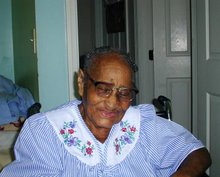
The two major causes of degenerative (non-reversible) dementia are Alzheimer's disease and vascular dementia (loss of brain function due to a series of small strokes). The two conditions often occur together.
Dementia may be diagnosed when a patient has two or more problems in brain function. Problems may involve language, memory, perception, emotional behavior or personality, and cognitive skills (such as calculation, abstract thinking, or judgment). Dementia usually first appears as forgetfulness. Other symptoms may only be seen during a medical exam or with cognitive tests.
- Progressive memory loss
- Inability to concentrate
- Decrease in problem-solving skills and judgment capability
- Severe Confusion
- Hallucinations and delusions
- Altered sensation or perception
- Impaired recognition of familiar objects or persons
- Altered sleep patterns i.e. Disturbance or change in sleep-wake cycle
- Motor system impairment i.e. Inability to dress self
- Disorientation i.e. Person, place, time disorientation
- Specific disorders of problem-solving or learning
- Memory deficit - Short-term or Long-term
- Absent or impaired language ability
- Personality changes
- Lack of spontaneity
If you think your loved one may be suffering from Dementia, it is important that you contact his/her primary care physician for an accurate diagnosis as soon as possible.
.jpg)








No comments:
Post a Comment